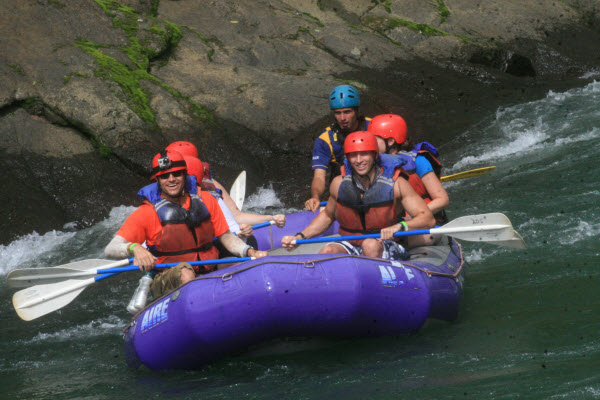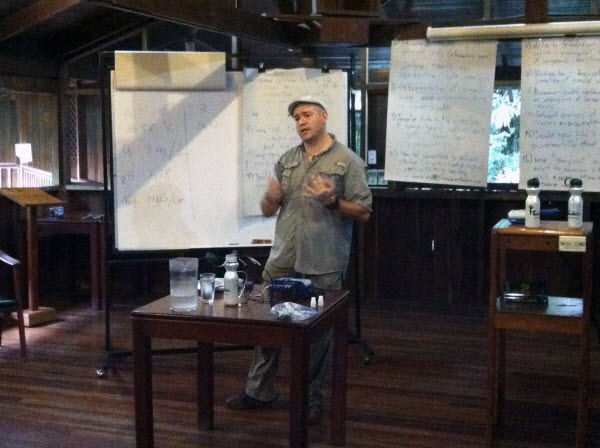Water quality sampling on the Sarapiquí River in Costa Rica
Science educators from the U.S. recently traveled to Sarapiquí, Costa Rica, for a professional development seminar to learn how to lead students on educational travel programs abroad and translate those experiences back to the classroom. As part of this field-based workshop, which was organized by Holbrook Travel and held at Selva Verde Lodge and Rainforest Reserve, participants tested water quality using PASCO probeware, combining fun and field studies in a river rafting activity that would appeal to most students. Here’s what the group’s guide, biologist and field instructor Paulo Valerio, had to say about the experience:
In the field
Sarapiquí is well-known for its lush forest, abundant wildlife and some fun adventure activities around the majestic Sarapiquí River. The river begins in the mountains of the Central Volcanic Range, and for years it has been nearly pristine. But in recent years, the changes on the land use and the development of the region have posed a threat to the pristine waters of the Sarapiquí River.

We decided to use PASCO SPARK Science Learning System to monitor the water quality of the river and try to identify sources of pollution. We collected samples from 3 locations: Location A at the boarding point in La Virgen, Location B at “the eddy” where the group stopped half way for a snack, and then Location C in Chilamate by the lodge where the rafting adventure ends. The water samples were then analyzed with the PASPORT Water Quality Sensor, recording the temperature, pH, dissolved oxygen content and conductivity.
Results
The data obtained showed no conclusive changes in the pH levels (around 7.7), but there were variations on the dissolved oxygen and conductivity measurements in all samples. Sample A showed 9 mg/L of dissolved oxygen vs. 10.8 mg/L in sample B and 12.1 mg/L in sample C. The teachers agreed that the difference on the levels of dissolved oxygen could be explained by changes in the rivers flow—before, in the middle, and after the rapids, so the agitation of the rapids contributed to a higher level of gas absorption by the water.

The most interesting data, was the conductivity measurements. Sample A showed 84 µ S/cm2, while samples B and C showed 110 µ S/cm2 and 194 µ S/cm2, respectively. The teachers developed several explanations for what could have caused the variation between samples. They remembered seeing some plantations and proposed a hypothesis: leached fertilizers from the plantations may have reached the water, increasing the ion content, specifically nitrates and phosphates, therefore showing higher levels of conductivity as the sampling moved downstream.
Even though we could not obtain the exact levels of nitrates and phosphates using the conductivity probe, the experience itself was a simple and fun way to use the PASCO probeware to obtain and analyze information, while allowing the participants to exercise their observation and analytic skills.
Impact
This exercise led to a broader conversation on how students could assess the data collected on the Sarapiquí River in relation to rivers within their hometown. Participants also discussed the idea of Selva Verde Lodge keeping an ongoing log of water quality, maintained by local students, guides, or incoming travel groups, so that future visitors would have longitudinal data for comparison.
Furthermore, the activity demonstrated how students could examine the consequences of human activity on the river. As the seminar’s sponsoring organization, Holbrook Travel strives to create meaningful and engaging experiences for a deeper understanding of its host countries’ natural resources, cultures, and the relationships between the two. To that end, the PASCO’s SPARK showed how data collected in the field could be used to connect students with real-world effects from interaction between communities and their environment.

Holbrook Travel has been providing educational field expeditions for educators, students, and special interest groups since 1974. For more information on upcoming professional development opportunities—including programs for June 2014—and to see how your students could incorporate PASCO technology into an international study program, visit Holbrook Travel.


